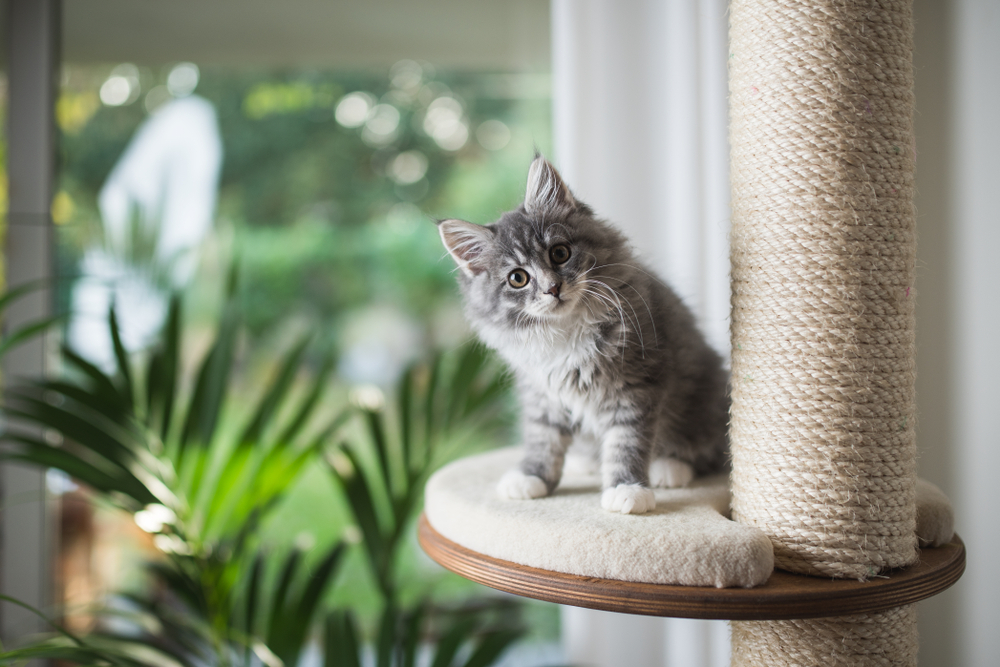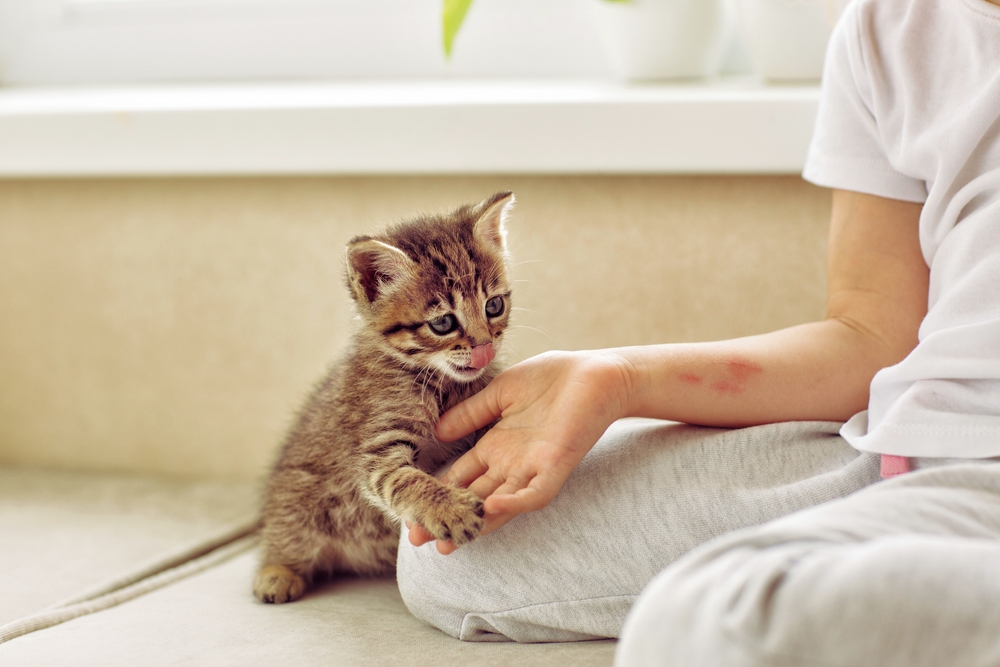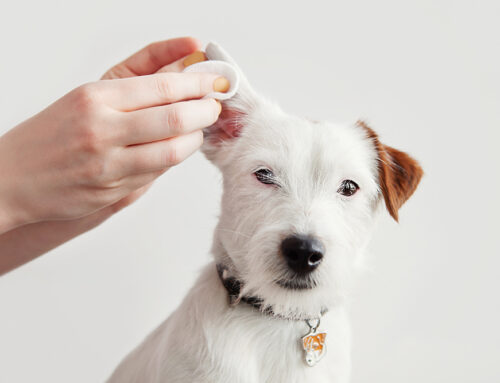The first year of a kitten’s life is a crucial developmental period in which pet owners play a pivotal role. Knowing how your kitten’s body and brain develop can help you shepherd them into a healthy and well-adjusted adulthood. The Memorial Villages Animal Hospital team created this guide to ensure new kitten owners understand the important milestones, veterinary care requirements, and socialization needs of their furry pal, and how to create a cat-friendly home.
Kitten growth and milestones
Kittens grow and develop rapidly after birth. Major stages and milestones include:
- Newborn — Newborn kittens are blind and deaf, relying on their mother to keep them warm and nourish them with milk and antibody-rich colostrum.
- 1-2 weeks — Eyes and ears open, and the kittens become more active and vocal.
- 3-4 weeks — Kittens become more active, exploring their surroundings and beginning to play.
- 5-6 weeks — Kittens have most of their baby teeth and can be weaned onto wet kitten food.
- 7-8 weeks — Kittens are active, eating wet and dry food, and testing the waters of independence.
- 8-10 weeks — Kittens are ready to go to their new homes.
Veterinary care for kittens
Veterinary care is critically important for good kitten health. Give your new kitten a few days to settle into your home, then take them to your veterinarian to start or continue vaccinations and other vital preventive care measures. If you have other cats at home, you should keep them separate from the new addition until you have the all-clear from your veterinarian.
During your first visit, your veterinarian will discuss:
- Vaccinations — Kittens should start their core vaccine series around 6 to 8 weeks of age and will need boosters every two to four weeks until they are at least 4 months old. Vaccinations protect against deadly feline diseases, such as panleukopenia.
- Parasite control — Kittens require several deworming treatments because most are born with intestinal parasites contracted in utero or shortly after birth, owing to a clever life cycle hack on the worms’ part. Flea, tick, and heartworm control is recommended for kittens older than 8 weeks.
- Viral testing — Feline immunodeficiency and feline leukemia viruses are lifelong infections that have significant deleterious effects on the immune system. Knowing your kitten’s viral status is important to plan for their future health needs and that of other cats in your home.
- Microchipping — Microchipping provides permanent identification in case your kitten becomes lost.
- Spaying or neutering — Spaying females or neutering males reduces unwanted hormonal behaviors, such as urine spraying, and reproductive health risks, such as mammary or testicular cancers. The best time for this surgery is around 5 months of age, before the kitten reaches sexual maturity.
- Nutrition — Kittens require energy-dense, species-specific diets to ensure proper growth and development.
Socialization for kittens
Studies show that a cat’s personality and sociability are influenced by a combination of genes and environment. The most critical socialization period for kittens occurs between 2 and 7 weeks of age, a time when kittens are still with their mothers and litter mates. Kittens who are gently handled by humans during this time adapt well to living in homes with people. You can’t control what happens to your kitten before you adopt them, but you should plan to continue intentional socialization until they are at least 14 weeks old.
During the socialization period, introduce your kitten to as many different people, pets, experiences, objects, and places as you can, but remember to keep each introduction brief and positive by using treats or another reward. For help, try socialization bingo or sign up for a local kitten kindergarten class.
Creating a kitten- and cat-friendly home

Although cats are considered domesticated, they retain most of the genes and natural behaviors of their wild counterparts. New kitten owners should strive to create an environment that meets all of their pet’s basic needs, allows them to practice natural behaviors, and keeps them physically and mentally stimulated.
Consider the following components of a cat-friendly home:
- Adequate resources — Ensure that your new kitten has their own food and water stations and that you have at least one litter box per cat, plus one more, in the home.
- Safe resting places — Kittens love to snuggle up in cozy, elevated beds.
- Ample play opportunities — Plan to play with your kitten daily using fun toys that mimic prey and allow for the expression of hunting instincts.
- Interesting spaces — Window perches, wall shelves, catwalks, cat trees, and enclosed “catios” provide interest and keep indoor kittens active.
- Safe scratching areas — Teach good scratching habits from the start by providing several vertical and horizontal scratching posts with varying textures, and rewarding your kitten for using them.
As you embark on your kitten’s first-year journey, remember that each moment is an opportunity for growth, love, and joy. If you have questions about your kitten’s development, need to schedule a preventive care visit, or simply want to send a cute photo or update, contact our Memorial Villages Animal Hospital team.









Leave A Comment